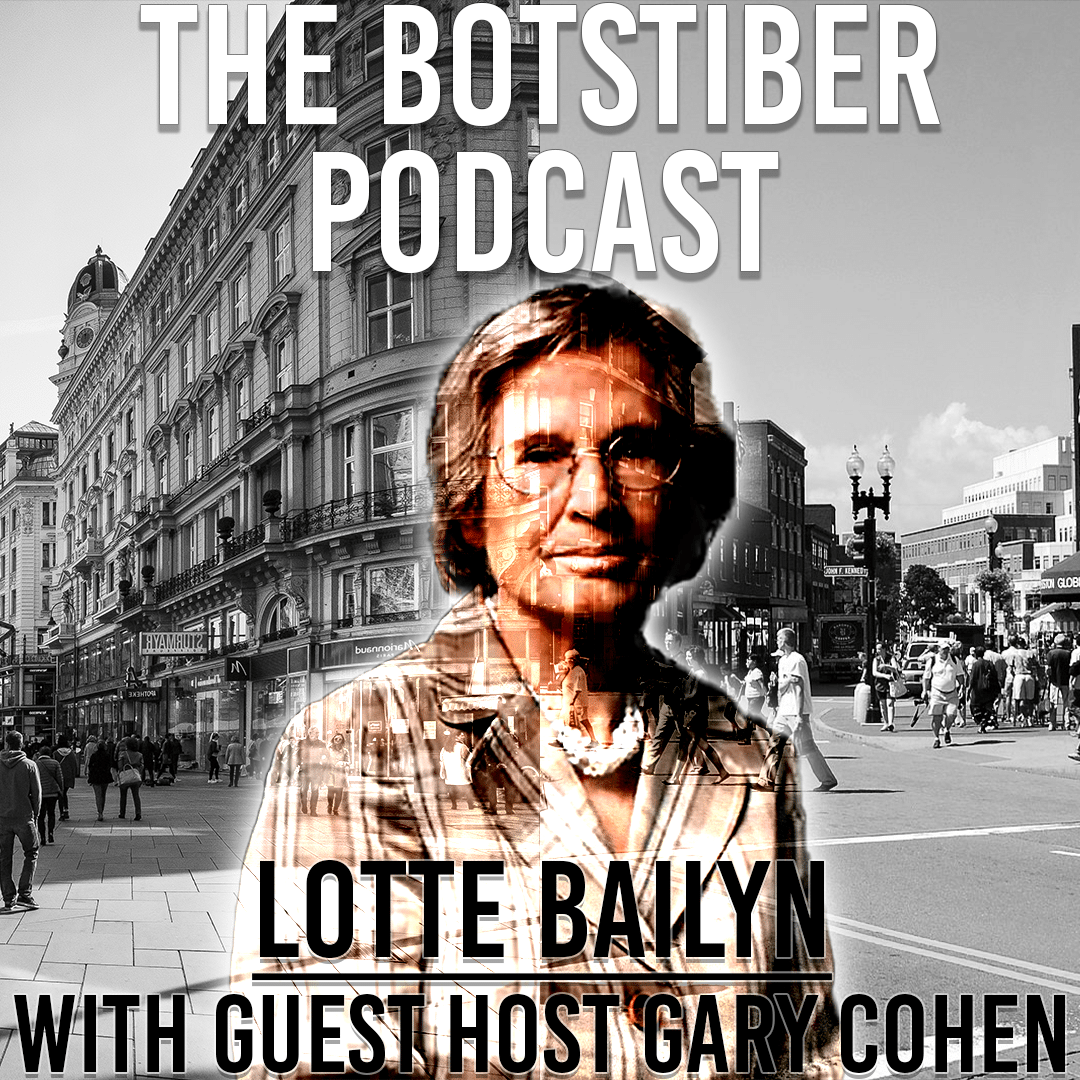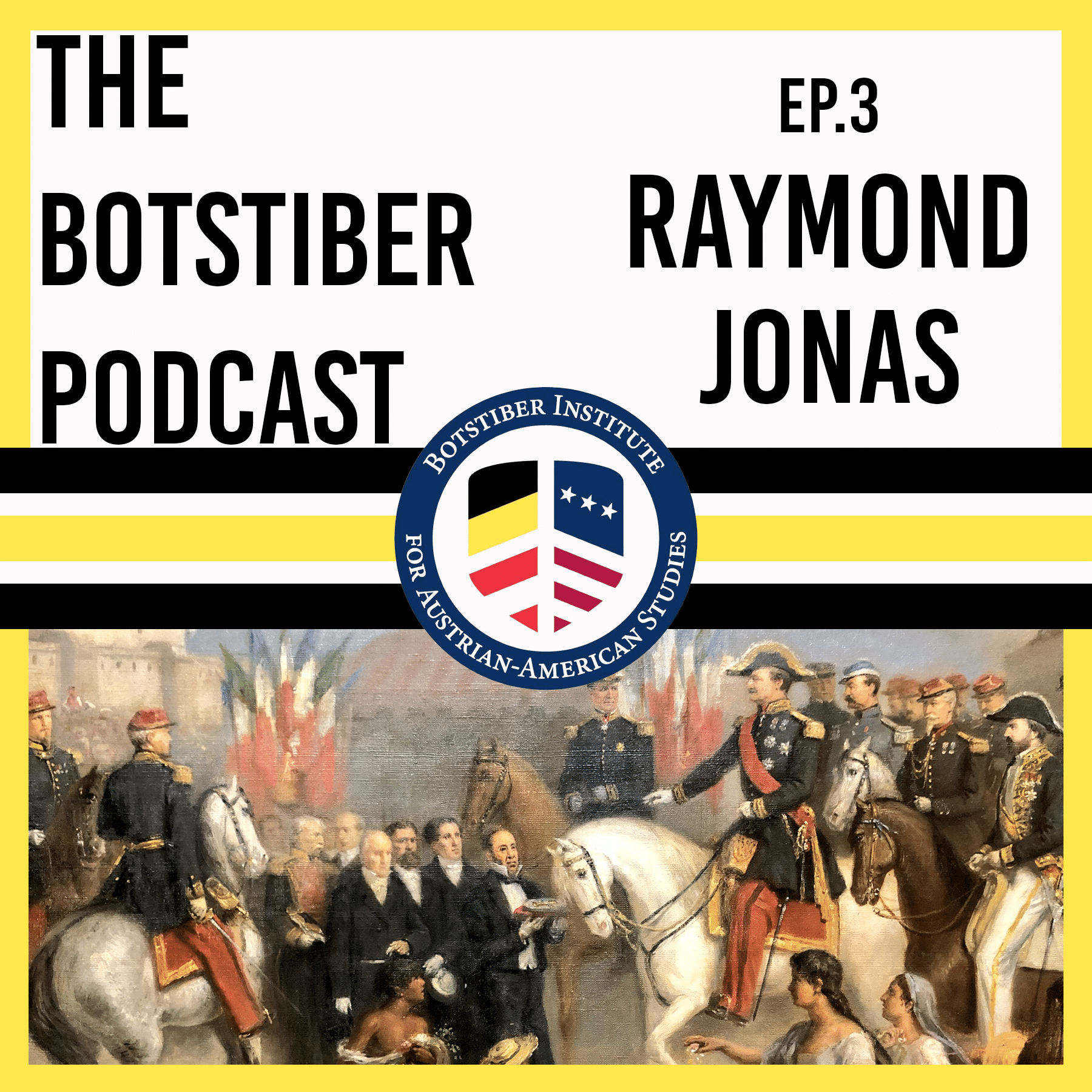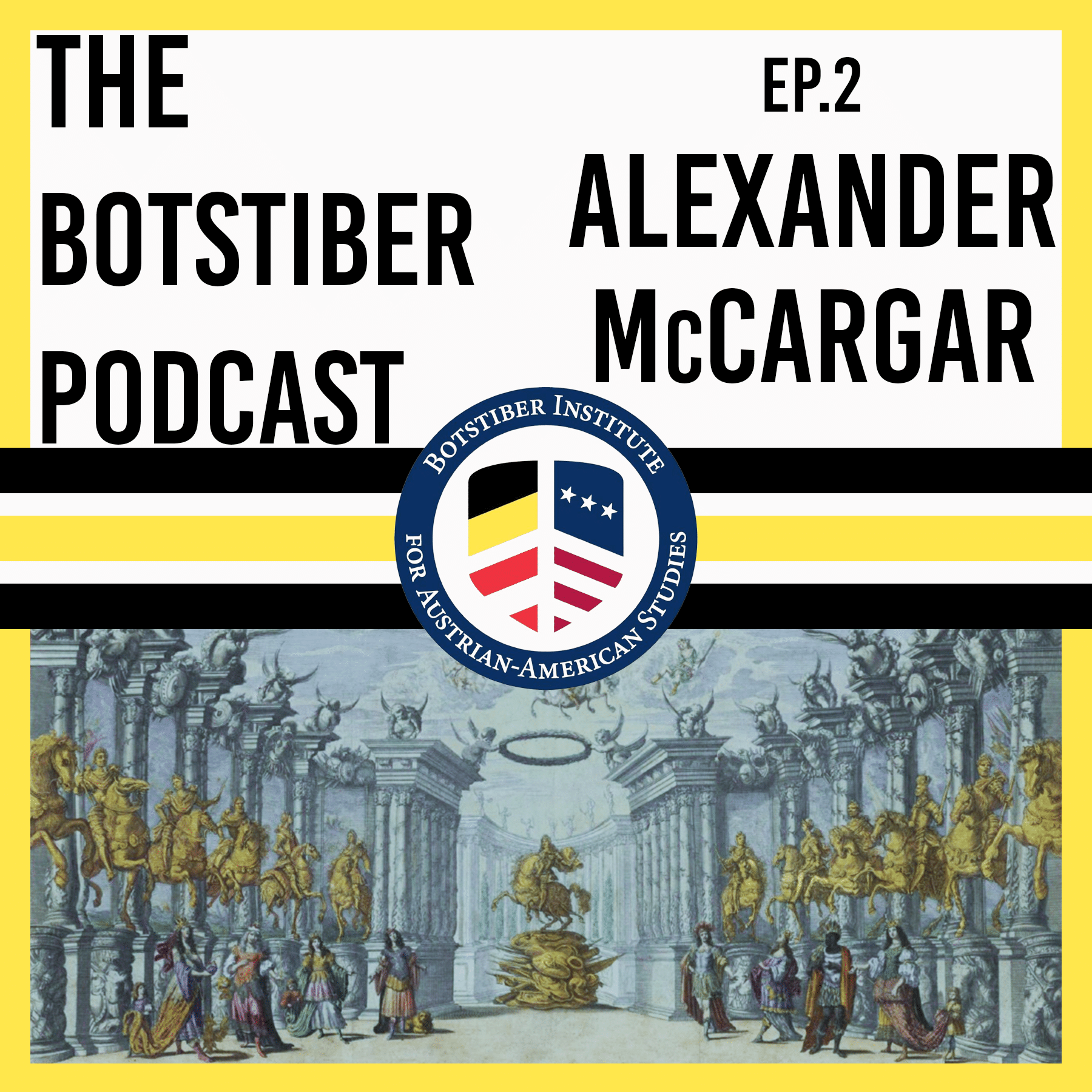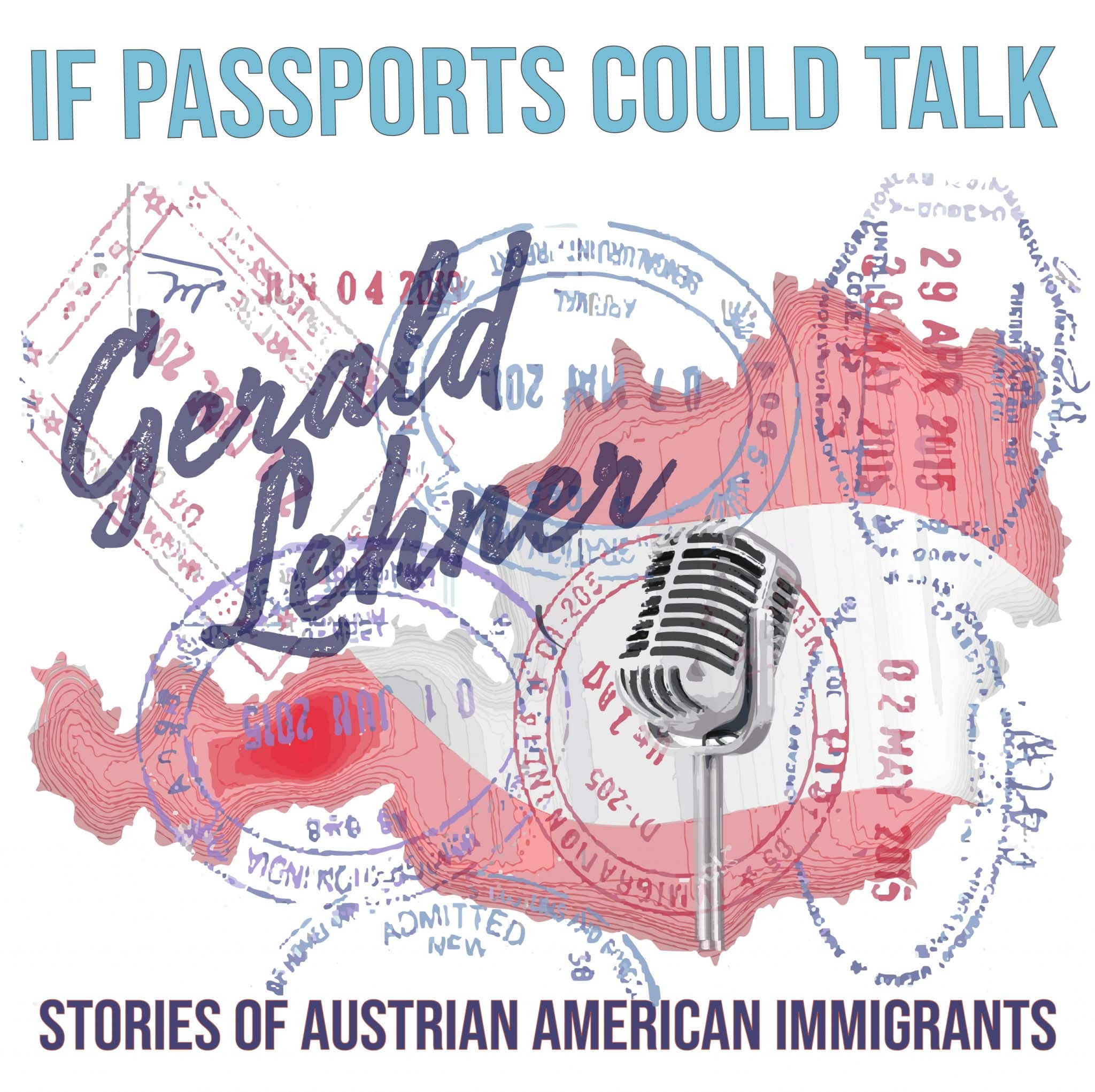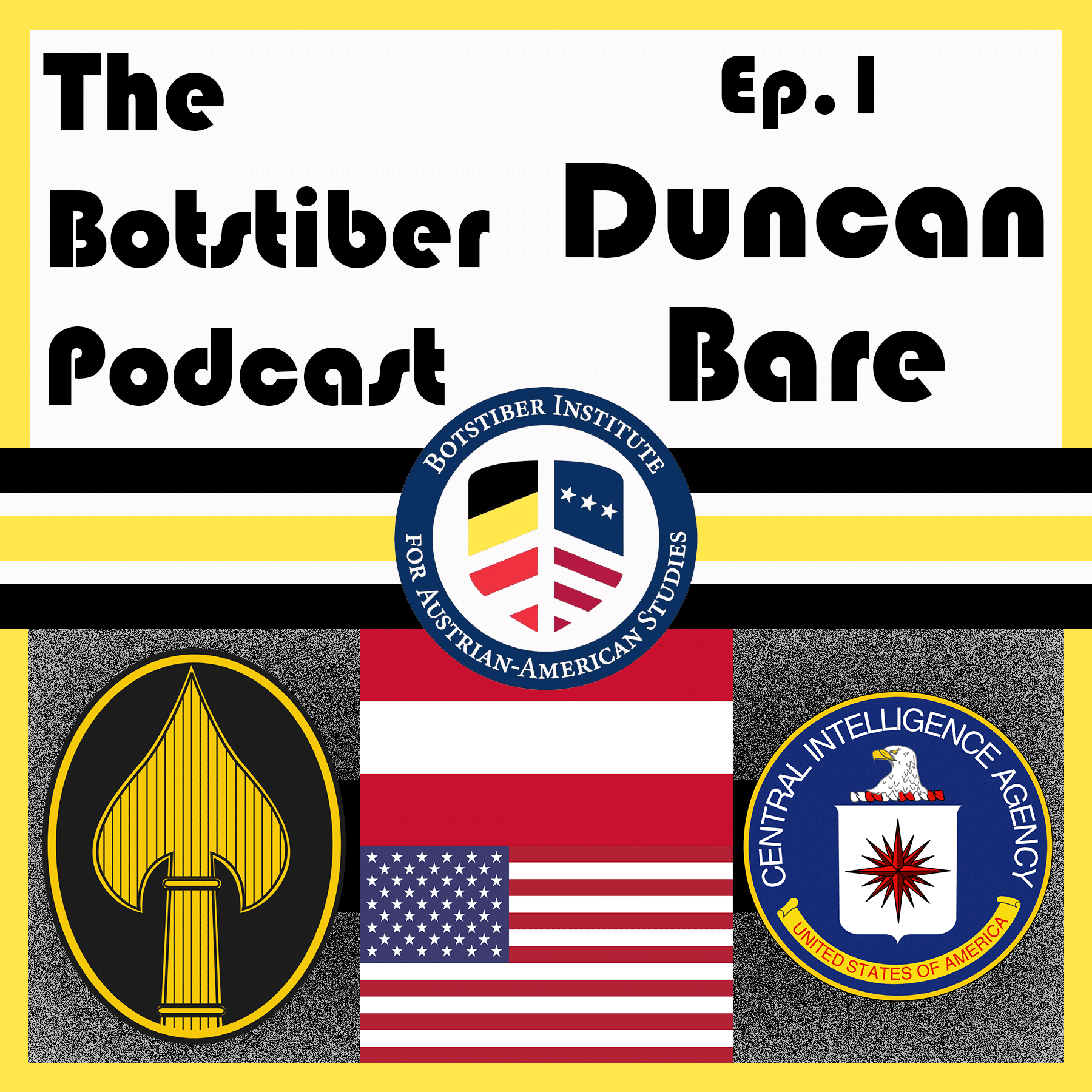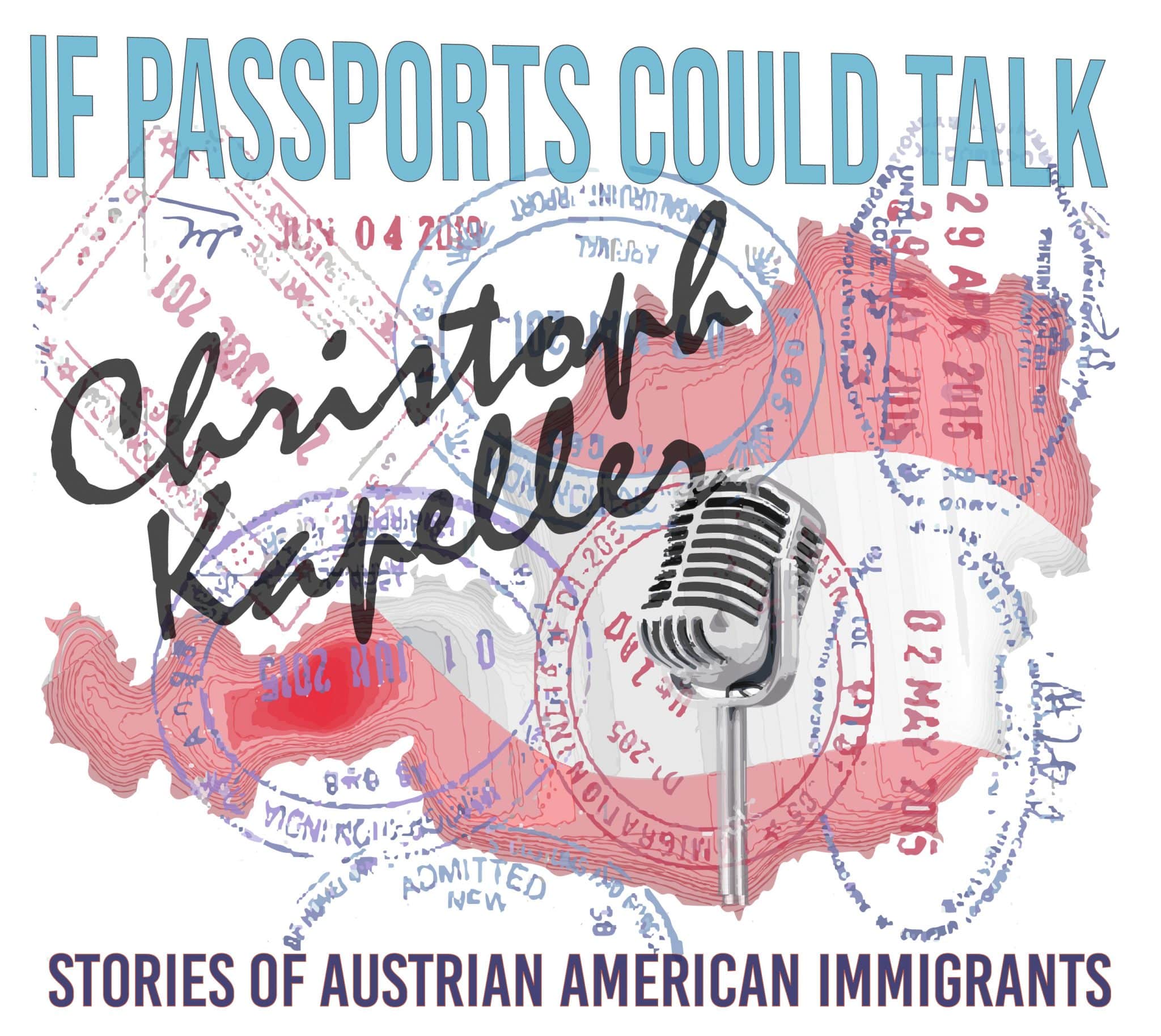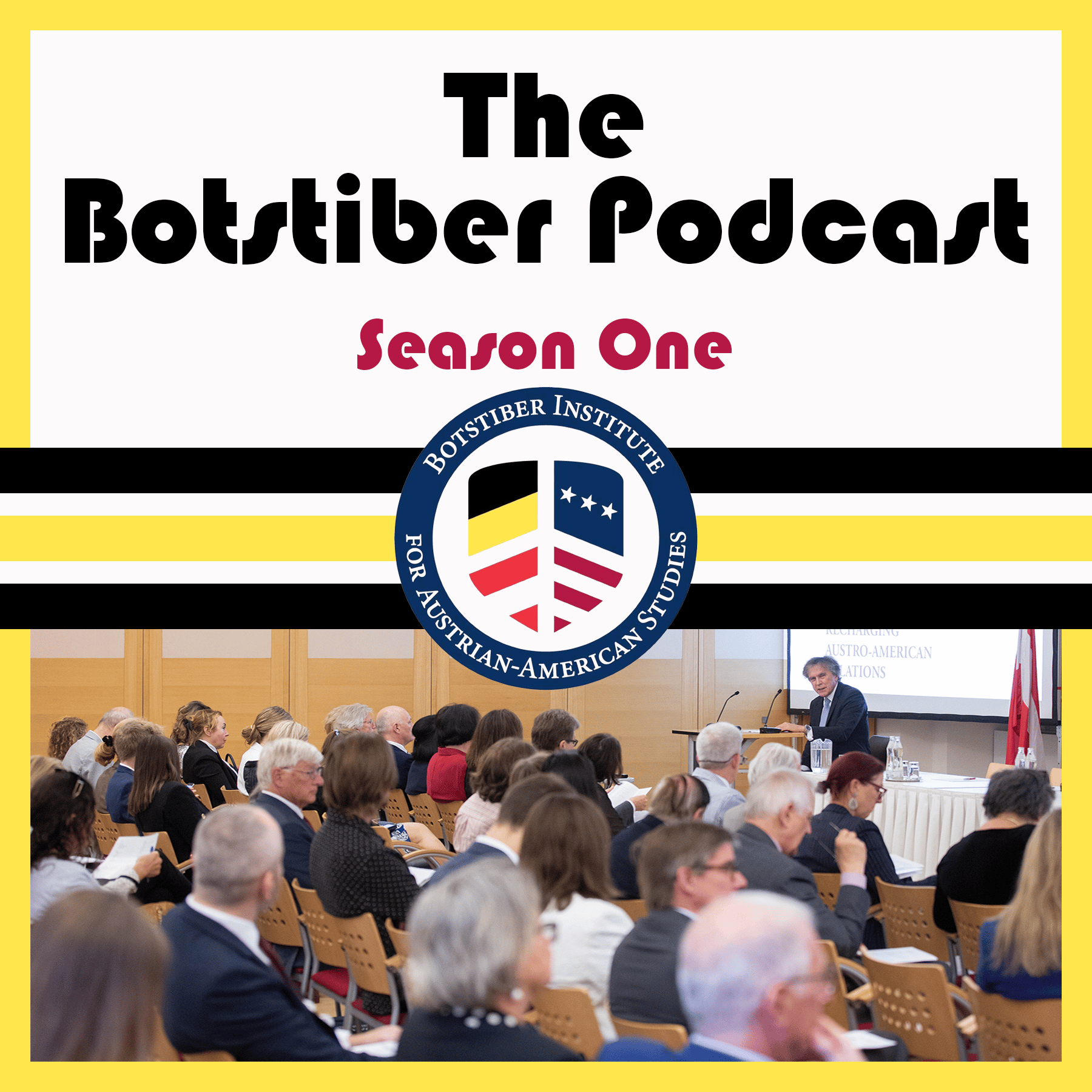Podcasts
BIAAS actively promotes the work of our grantees, fellows and other Austrian-American scholars through The Botstiber Podcast
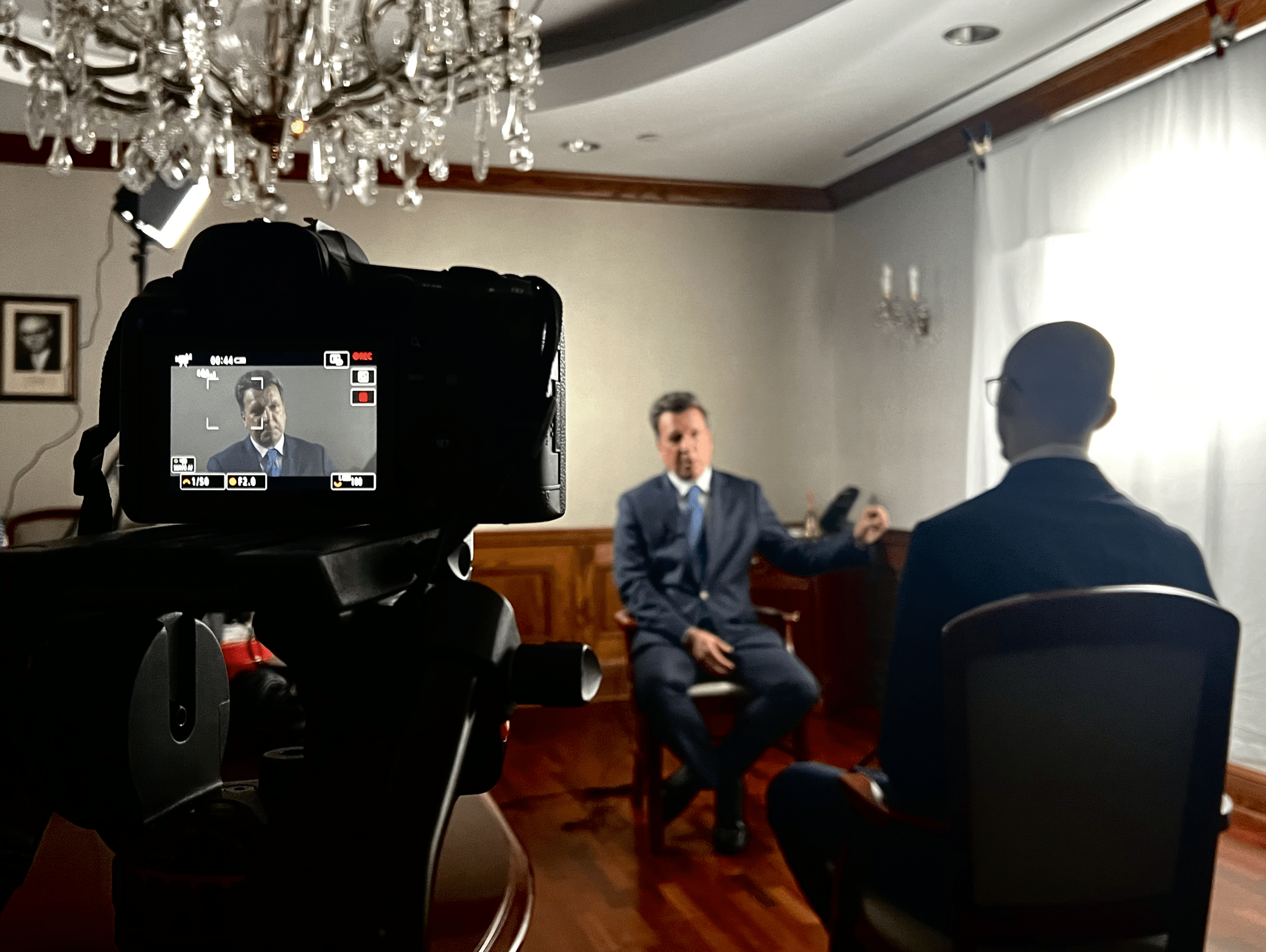
The Botstiber Podcast | Season 4
Episode 4: Lotte Bailyn w/ Guest Host Gary Cohen
June 2024
Lotte Bailyn, Professor Emerita at the MIT Sloan School of Management, is a trailblazer in the field of organizational behavior and the daughter of acclaimed Austrian social scientists Marie Jahoda and Paul Lazarsfeld. Her pioneering research on work-life integration and gender equality has had a profound impact on workplaces around the world.
In this episode, Bailyn shares parts of her remarkable life story, highlighting her deep connections to Austria. From her family’s Austrian roots to her academic and professional collaborations, Austria has played a significant role in shaping Bailyn’s perspectives and achievements.
Episode 3: Raymond Jonas
May 2024
Raymond Jonas is a Botstiber grant recipient and the Jon Bridgman Endowed Professor in History at the University of Washington. In this episode, he discusses the rise and fall of Maximilian I and the Second Mexican Empire. A brief yet impactful period, the story of the Second Mexican Empire connects 19th century Mexico and the United States with European powers of the era and a motivated Habsburg monarch, Maximilian I.
Much of the conversation stems from Jonas’ recent book, Habsburgs on the Rio Grande: The Rise and Fall of the Second Mexican Empire (2024).
Episode 2: Alexander McCargar
May 2024
Today’s guest is Yale University graduate and University of Vienna doctoral student, Alexander McCargar! In this episode, he discusses early perceptions and portrayals of Native America in the Habsburg Empire and Austrian society, as well how these first impressions evolved into present-day understanding.
McCargar offers a unique approach to historical analysis, blending his backgrounds in stage design, theatre, architecture and more!
If Passports Could Talk #4 | Gerald Lehner
March 2024
Born in Bad Gastein, nestled in the middle of Austria, Gerald Lehner began a lifelong journey from the alpine peaks of Central Europe, to the high-altitude vistas of the Himalayas, the windswept terrains of Alaska, and countless other places around the world.
As an engineer and teacher, Lehner contributed directly to the communities that welcomed him. As a journalist for major news publications like ORF, Profil and Der Spiegel, he supported his hosts by sharing their stories with global audiences, thousands of miles away.
Listen in to hear Lehner’s most beloved and formative stories from his multi-continental adventures!
Episode 1: Duncan Bare
February 2024
In this episode we are lucky to hear from recent Botstiber grantee and lecturer at the University of Graz, Duncan Bare. Bare’s research has offered a new glimpse into the development of the United States’ intelligence agencies, especially the OSS, SSU and CIG, in the context of their 1940s Austrian operations.
Listen in to hear the stories of these organizations’ early days, the normal people tasked with establishing their presence, and the eventual creation of the CIA!
If Passports Could Talk #3 | Christoph Kapeller
January 2024
Today’s guest is renowned architect Christoph Kapeller.
In this episode, he reflects on his journey from southeastern Austria along the border with Slovenia, to busy streets across the United States, and sunny days in the historic Egyptian city of Alexandria.
The Botstiber Podcast | Season 3
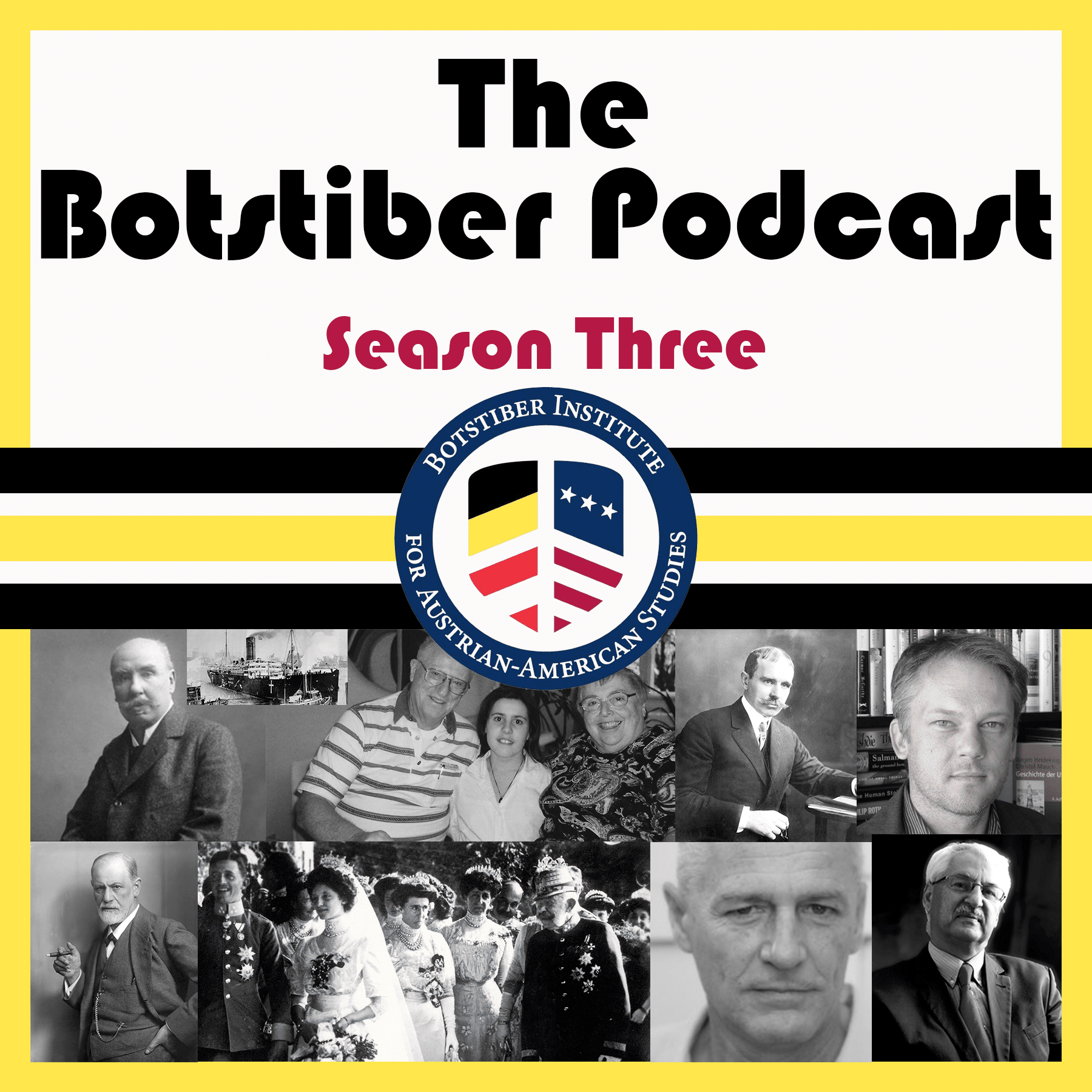
Episode 1: Dominique K. Reill
August 2022
In the first episode of The Botstiber Podcast, Luke sits down with Professor Reill to discuss the crisis city of Fiume, known today as Rijeka, Croatia. Fiume faced immense challenges between 1918-21 after the dissolution of the Austro-Hungarian Empire left it stateless, leaving room for celebrity poets like Gabriele D’Annunzio to stoke nationalist flames and attempt to benefit from the chaos.
Read more about these topics in her book, The Fiume Crisis: Life in the Wake of the Habsburg Empire (2020).
Episode 2: Deborah Cohen
September 2022
Following WWI, five American journalists carved out their legacies abroad as foreign correspondents. These five, referred to as the “Inner Circle” by Professor Cohen, were paramount to reporting on the dismaying rise of dictators and fascism in the early-mid 20th century.
From uncertain interviews with Hitler to friendly letters with Nehru, listen in as Professor Cohen and Luke discuss the experiences that helped the Inner Circle warn fellow Americans of a looming war in Europe, and how their duties as reporters overlapped with their personal lives.
Read more about these topics in her book, Last Call at the Hotel Imperial: The Reporters Who Took on a World at War (2022).
Episode 3: Andrew Nagorski
November 2022
While many are aware of Sigmund Freud’s profound scientific accomplishments, few know of his suspenseful escape from Vienna following the Nazi Anschluss of Austria.
Author and veteran journalist, Andrew Nagorski, discusses the diverse rescue squad (including an American diplomat, a Bonaparte princess, a British psychoanalyst and more) that made the last-second escape possible for Austrian-Jewish Freud, and the sociopolitical climate that convinced Freud to briefly remain in his native Vienna despite the Nazi takeover.
Read more about these topics in his book, Saving Freud: The Rescuers Who Brought Him to Freedom (2022).
Episode 4: Tara Zahra
February 2023
A professor of modern European history and the Habsburg monarchy at the University of Chicago, Tara Zahra joins this episode of The Botstiber Podcast to discuss the concepts of globalism and anti-globalism, as they evolved throughout the early 20th century.
Important figures and norm-shattering events of the era helped shape international sentiment in a rapidly globalizing world. Listen in to learn more about them and how they may inform us of similar issues, today.
Read more about these topics in her book, Against the World: Anti-Globalism and Mass Politics Between the World Wars (2023).
Episode 5: Larry Wolff
August 2023
When Austro-Hungarian Emperor Karl and Empress Zita embarked on their exile from Austria in 1919, it marked the conclusion of the Habsburg family’s rule over Europe after several hundred years. In this episode, historian and author Larry Wolff joins Luke Morgante of the Botstiber Institute to underline the significance of this transition, and how Hugo von Hofmannsthal and Richard Strauss’ fictitious opera, Die Frau Ohne Schatten (1919), reflected the sociopolitical changes that were rapidly reshaping Europe.
Read more about these topics in his book, The Shadow of the Empress: Fairy-Tale Opera and the End of the Habsburg Monarchy (2023).
If Passports Could Talk #1 | Günter Bischof
October 2023
In this captivating narrative podcast episode, we embark on a journey through the remarkable life of Austrian-American historian Günter Bischof.
Raised in the alpine village of Mellau, Austria, Bischof’s path to becoming a renowned historian is a tale of transcontinental exploration. We follow him from his academic origins in Europe, where he earned his master’s degree at the University of Innsbruck, to his transformative move to the United States, where he became a naturalized American citizen, earned a PhD from Harvard University, and later settled down in the bayous of Louisiana.
Episode 6: Lilly Maier
October 2023
Join host Luke Morgante for an engaging conversation with Viennese historian and author, Lilly Maier. In the episode, Lilly and Luke discuss the incredible life story of Arthur Kern, a Jewish survivor of the Holocaust who, after being forced to separate from his family, escaped to the United States as a child.
Arthur and Lilly‘s stories became interconnected in 2003 when he returned to his childhood home in Vienna for the first time since fleeing — a turn-of-the-century apartment where young Lilly was now living with her mother. This fateful meeting would compel Lilly to pursue a life as a historian, uncovering the stories of Arthur’s escape and thousands of others impacted during the period.
If Passports Could Talk #2 | Gerald Steinacher
November 2023
In this episode, Austrian-American guest Gerald Steinacher takes us on a journey from the mountain peaks of Tyrol to the Great Plains of Nebraska.
Along the way, Steinacher has contributed greatly to the field of Austrian-American studies. Currently the James A. Rawley Professor of History at the University of Nebraska – Lincoln, Steinacher has published multiple works on topics such as the Holocaust, Fascism and Denazification.
Episode 7: Nina Kaiser
December 2023
Joining the episode from the University of Graz in southern Austria, Nina Kaiser discusses the important contributions made to criminology and evidence law by the Austrian jurist Hans Gross and his American contemporary, John Henry Wigmore.
Supported by the Botstiber Institute for Austrian-American Studies, Kaiser’s groundbreaking research also analyzes the intellectual relationship shared by Gross and Wigmore, and its impacts on both sides of the Atlantic.
Botstiber Presents: Christmas in Vienna (Full Special)
December 2023
The Botstiber Institute for Austrian-American Studies presents, Christmas in Vienna.
From warm meals in busy Christmas markets, to scary visits from Krampus, and gifts under the Tannenbaum, Austria has a wealth of cultural customs to offer throughout the month of December. In the first-ever Botstiber Christmas special, listen along as ten individuals from across Austria share with us their most cherished memories and traditions of the holiday season.
The Botstiber Podcast | Season 2
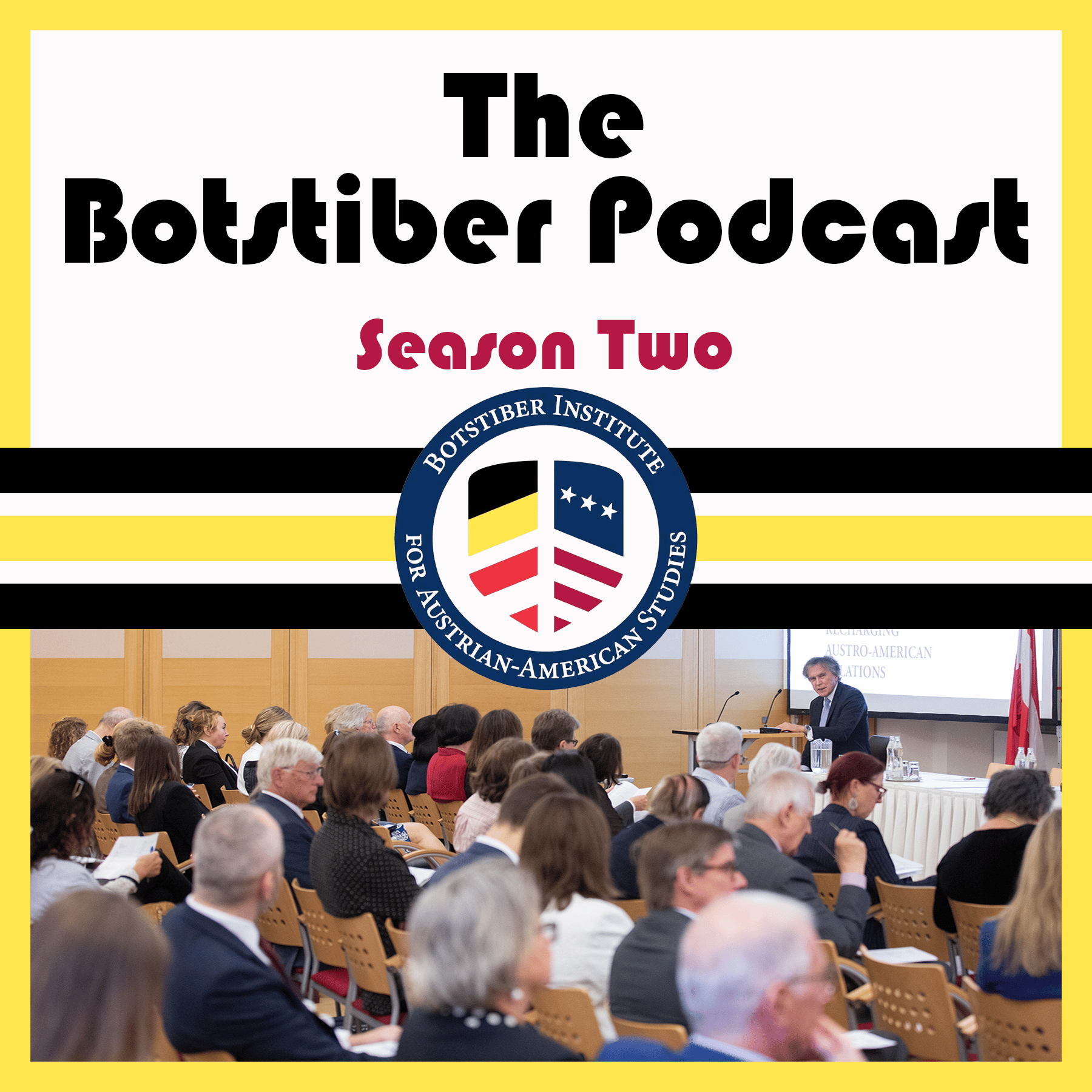
Episode 1: Michael Burri
2020
Clemens von Pirquet, an Austrian pediatrician and scientist, held a prominent role in the international post-WWI humanitarian relief efforts during Austria’s hunger crisis. Pirquet directed his unique, scientific-based system of nutrition (no cocoa here, please) with the support of the American Relief Administration. As a result of this transatlantic partnership, hundreds of thousands of Austrian children were saved from starvation.
Pirquet is primarily remembered today for his eponymous tuberculin skin test and for imparting the term “allergy” to represent the body’s heightened responses to a foreign substance. In this podcast with Dr. Michael Burri, we appreciate Pirquet’s significant achievements as an early global public health figure.
Episode 2: Katherine E. Sorrels
2021
The Camphill Movement is a global network of intentional communities for abled and intellectually disabled people. With over 100 communities today, Camphill began in 1939 after Dr. Karl Koenig, his wife Tilla, and a group of volunteers—all having fled Nazi-occupied Vienna in 1938—rejoined in Aberdeen, Scotland. There they undertook the care of Austrian- and German-Jewish refugee children, as well as British children with disabilities. From that first Camphill Special School, a fusion of Jewish diasporas with Austrian and German spiritual movements and the U.S. counterculture all developed Camphill’s extraordinary approach to disability.
Episode 3: Christiane Tewinkel
2021
Dr. Christiane Tewinkel discusses her musicology research as related to Theodor Leschetizky and his American students. Born in Galicia in 1830, Theodor Leschetizky, a pianist and composer himself, became internationally famous as a piano teacher with over 1,000 students. Of these, 350-400 were American.
Although Leschetizky had enormous influence during his time, his personal records had never been studied. That is, until now. Christiane Tewinkel traveled to the Leschetizky Association in New York to see their special collection for herself. Her findings are fascinating, revealing so much about a man, his “Method,” students, transatlantic relations, musicology, and more.
Episode 4: Alison Clarke
2021
Prof. Alison J. Clarke discusses her book, “Victor Papanek: Designer for the Real World,” a biography of social design’s Austrian-American trailblazer. Victor Papanek wrote “Design for the Real World,” a book that augured the ascent of socially and ecologically sustainable design movements many years later. Published in 1971, the impact and relevance of his book persists globally. Prof. Clarke argues that Papanek’s Austrian and émigré experiences are significant for understanding the designer and his theories.
Episode 5: Lilly Maier
2021
Lilly Maier is the author of Ernst Papanek biography, “Auf Wiedersehen, Kinder!: Ernst Papanek. Revolutionär, Reformpädagoge und Retter jüdischer Kinder.” In this podcast, she discusses the remarkable life of the Viennese-born socialist and educator who saved the lives of almost 300 children from the Nazis.
Episode 7: Swen Steinberg
2021
Special guest host Jacqueline Vansant, professor emerita of German at the University of Michigan-Dearborn, discusses different research perspectives examining Austrian-Jewish Child Migration during WWII. In Early Refugee Studies in Austrian Children and Youth Fleeing Nazi Austria with Swen Steinberg, the conversation features the research questionnaires from Ernst Papanek’s graduate work. Papanek rescued almost 300 children during WWII, and he further sought to understand their experiences in a manner unmitigated by adult intervention, time, and experience.
Episode 9: Kirsten Krick-Aigner
2021
Special guest host Jacqueline Vansant, professor emerita of German at the University of Michigan-Dearborn, discusses different research perspectives examining Austrian-Jewish Child Migration during WWII. In “Epistolary Rescue in Austrian Children and Youth Fleeing Nazi Austria” with Kirsten Krick-Aigner, adolescent agency is featured as well as the diversity of archival resources available in the record of Marianne Winter and her family’s migration.
Episode 4: Wladimir Fischer-Nebmaier, James Oberly, and Annemarie Steidl
2019
In this podcast on their book entitled “From a Multiethnic Empire to a Nation of Nations: Austro-Hungarian Migrants in the US, 1870 to 1940”, authors Wladimir Fischer-Nebmaier, James Oberly, and Annemarie Steidl discuss the unique findings of their collaborative, multi-disciplinary study in which they uncovered new information regarding the migration between the Habsburg Monarchy and the United States—among the most significant migrations in history. Their work challenges commonly held immigration theories regarding assimilation while documenting the diversity of ethnic and religious groups during the two waves of migration from Austro-Hungary.
Episode 5: William O’Reilly
2019
William O’Reilly, senior lecturer in Early Modern History at the University of Cambridge and full-time fellow at the Institute for Advanced Study at the Central European University, discusses his research for his forthcoming book, Selling Souls, with Jonathan Singerton. Early human traffickers, soul-sellers (Seelenverkäufer) were in the business of enlisting and conveying German-speaking migrants to North America and Central and Eastern Europe in the seventeenth and eighteenth centuries.
Episode 6: Marion Romberg
2019
Marion Romberg discusses how the image of America (with feather crowns, parrots, and crocodiles) was popularized in early modern times with Jonathan Singerton. Marion Romberg is a research associate at the Department of Habsburg and Balkan Studies at the Austrian Academy of Sciences (Vienna, Austria), the network editor of the Habsburg Discussion Network, and a Member of the Board of Directors for the Austrian Society for 18th Century Studies.
Episode 7: Kurt Bednar
2019
In his book, “The Paper War between the United States and Austria-Hungary,” historian Kurt Bednar looks at the final years of the Habsburg Monarchy through an American lens. He discusses the research for his book, his findings, and his views on one of the most pivotal chapters in Austrian-American relations with Jonathan Singerton.

